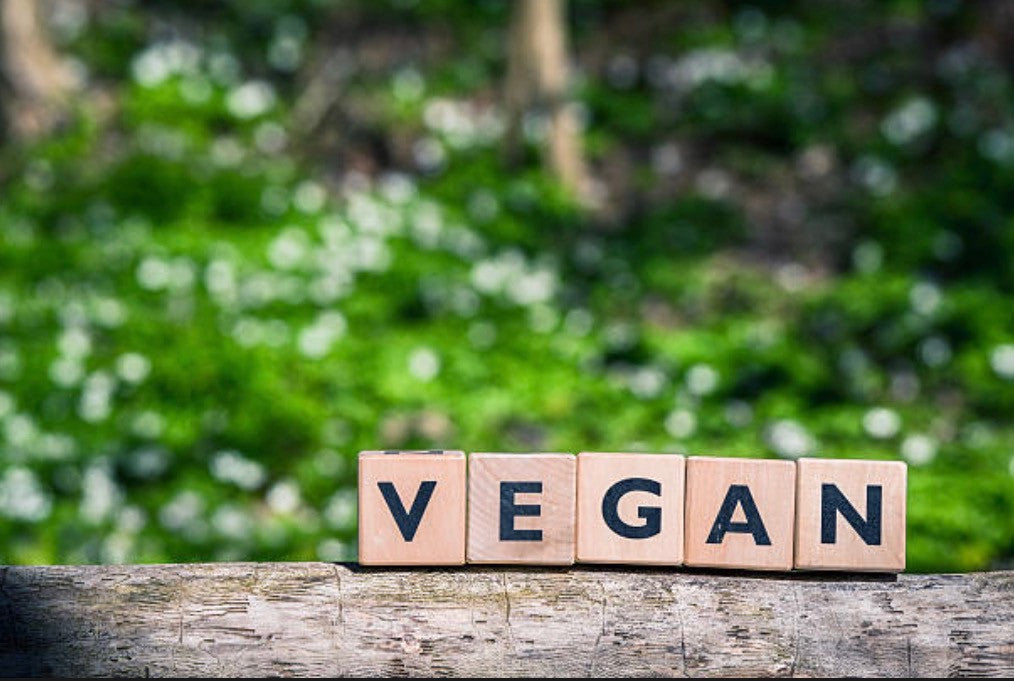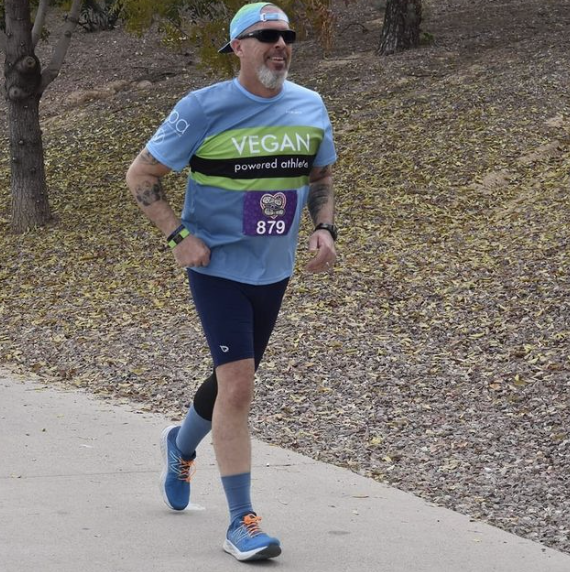
10 Powerful Tips to Help You Switch to a Vegan Diet for Good
If you’re a vegan athlete or are considering become one, you may have already noticed that our society is hardly oriented around being vegan. In 2013 seven percent of respondents to a Public Policy Polling survey reported being vegan, and six percent reported being vegetarian.
That’s certainly progress (in 1971 less than 1% of the U.S. population— “weirdos” like Steve Jobs— were vegan), but vegans still live in an overwhelmingly majority meat-eating world, which can make it hard to stay vegan, even despite your best intentions.
I was recently at a Triathlon Event and someone said they were vegan at home but vegetarian when eating out. When I asked why? He said because “it is just too hard to avoid the dairy when out at a restaurant or with friends.” “They put butter or milk or cheese on everything,” he says. “Why wouldn’t you go out of your way to avoid the dairy?” I asked him. “As an athlete, wouldn’t you want to avoid anything that causes inflammation in your body?” Then you should face the slight inconvenience it brings up at a restaurant or with friends.
If you are a vegan athlete or want to become one, here are 10 powerful tips to help you switch to a vegan diet for good:
1. Have Your Reasons for Being a Vegan
German philosophy heavyweight Friedrich Nietzsche said it best in the 19th century: “He who has a why to live for can bear almost any how.” Even though you may have to do without certain foods you’re accustomed to eating, face inconveniences, and maybe even judgment from others, if you know and understand your reasons for being vegan, it’s easier to stay committed to doing what it takes.
2. Have Your Reasons for Being a Vegan Athlete
Being a vegan athlete has many advantages. Many studies show a vegan diet can improve the performance and decrease the discomfort of endurance athlete training and competing. Increasingly, vegan athletes are winning more and more sports, including sports that require a lot of protein like bodybuilding and mixed martial arts. Nine-time Olympic medalist Carl Lewis has said, “My best year of track competition was the first year I ate a vegan diet.”
3. Learn to Cook Delicious Vegan Meals
Learning to cook delicious vegan meals will make a major difference in your ability to eat well and be satisfied by your diet after switching to being a vegan athlete. You will get bored and sick of just pasta, corn chips, and peanut butter sandwiches if you don’t learn to cook well-balanced meals with lots of fresh or cooked fruits and veggies, and healthy sources of protein and carbs.
4. Learn How to Order Vegan at Restaurants
Ordering vegan at non-vegan restaurants takes a bit of savvy. With some research into it you’ll be able to navigate most of the major restaurant genres pretty well and know what vegan items you can expect to find on the menu. If you haven’t been to a place before though, check out their menu in advance online or call to ask what vegan items they have, so you can order your vegan meal without making a big deal of it at the table.
5. Prepare When You Go Out for the Day
You may find yourself stranded without vegan food if you go out and haven’t planned your meals and how you’re going to eat for the day. Veganism does take some planning, because after all, society isn’t all the way with you yet on being a vegan, but with some prior planning, you should be able to avoid hungry afternoons or backsliding into non-vegan food.
6. Educate Yourself About Vegan Nutrition
It’s important that you have a well-balanced diet and get all the different nutrients your body needs, especially if you’re a vegan athlete. Researching nutrition is not something everybody does, vegan or not, so doing so will put you way ahead of many people in your society in terms of know how to eat well and give your body exactly what it needs.
7. Make Vegan Friends or Make Your Friends Vegan
Birds of a feather flock together. If you’re not hanging with any vegans, meet some! Or gently encourage your friends to become vegan by cooking them tasty vegan meals and taking them to delicious vegan restaurants. If you don’t have other vegans to talk to and eat with, you may find it hard to stay committed.
8. Read Vegan Books and Subscribe to Vegan Blogs
What you feed your mind matters as much as what you feed your body. Reading vegan books and vegan blogs keeps you aware and awake to the benefits, joys, and ethical importance of staying vegan.
9. Share a Positive Vegan Mindset with Others
As with any group of people trying to change the world from an established and mostly unquestioned practice, vegans are literally a threat to the values people have about eating and their relationship with nature. It’s easy for these kinds of conversations to devolve into negative feels, mistrust, and fighting. Don’t let it. You might find yourself growing tired of veganism if it’s a non-stop emotional war, which would be a shame, because it doesn’t have to be!
10. Keep a Positive Vegan Mindset for Yourself
Stay positive within your own mind as well. If you’re switching to a vegan diet, you might have a few false starts. If your reasons for being vegan are strong enough, you might come down hard on yourself if you backslide. Don’t do that! You could start to associate those negative emotions with trying to be vegan, which will hurt your progress. Be forgiving of yourself. You’re trying to change. Change is hard. Change takes time. You are doing something brave and challenging. Have a good sense of humor and proceed always onward and upward!








